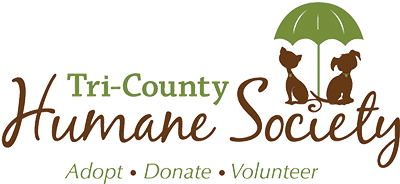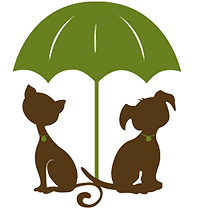Cocoa Bean Mulch Poses Threat To Pets
Made from spent cocoa beans used in chocolate production, cocoa bean mulch is organic, deters slugs and snails, and gives off an appealing chocolate scent. However, it also attracts dogs, who can be poisoned by eating the mulch. Cocoa beans contain the stimulants caffeine and theobromine, and dogs are highly sensitive to these chemicals. Low doses can cause mild gastrointestinal upset; higher doses can cause rapid heart rate, muscle tremors, seizures and even death. The ASPCA Animal Poison Control Center recommends pet owners avoid using this mulch around unsupervised dogs, and dogs with indiscriminate eating habits.
Hold the Onions and Garlic!
Did you know that onions/garlic are not good for dogs or cats? They cause toxicity by oxidizing hemoglobin in the red blood cells. As a result, the pet may become anemic. If a large amount of onions/garlic is consumed at one time, the pet may develop sudden anemia several days later. Even 1/4 cup of onions can make a 20-lb dog sick! If a pet eats a small amount every day for many days, it may gradually develop anemia over weeks to months.
Ice Melts
Most pets become exposed when they groom the compounds off their feet and fur. Salivation and mild gastrointestinal signs often ensue. Most problems can be prevented by wiping a pet's feet with a damp towel or bathing a pet soon after it has walked or rolled in areas with ice melt. Using sand or cat litter to help with traction in icy spots is a safe option. If pets must walk over ice melt compounds, paws can be pretreated with a thin layer of nonstick cooking spray to prevent adherence of the compounds. Booties can also help if pets tolerate them.
Antifreeze
Ethylene glycol is found most commonly in greenish colored antifreeze chemicals used in motor vehicles, but it is also in rust removers, film-processing solutions, and some solvents. Because of its sweet taste, even a small radiator leak of fluid can attract animals. A single lick can be deadly! Keep chemicals well sealed and out of reach. If ingestion is suspected, prompt veterinary intervention increases the chances of a favorable outcome.
Holiday Hazards
Poisonous Plants: Christmas cactus, mistletoe, holly, poinsettia plants.
Dangerous Decorations: tinsel, string, ribbon, tree lights, breakable ornaments, metal ornament hooks, artificial snow.
Toxic Treats: chocolate, bread dough, liquid potpourri, alcohol, avocado, coffee, garlic, grapes, raisins, hops, macadamia nuts, moldy or spoiled food, onions, salt.
Here is a quick reference guide to the more common house and garden plants that are toxic to most animals and children. If you have these plants, you need not dispose of them, but they should be kept out of reach from pets and children.
* Indicates substances that are especially dangerous and can be fatal
Cardiovascular Toxins
Avocado (leaves, seeds, stem, fruit, skin)* in birds and pocket pets
Azalea (entire rhododendron family)
Autumn Crocus*
Bleeding Heart*
Castor Bean*
Foxglove*
Hyacinth Bulbs*
Hydrangea*
Japanese Pieris*
Kalanchoe*
Lily-of-the-Valley*
Milkweed*
Mistletoe Berries*
Mountain Laurel
Oleander*
Rosary Pea*
Tobacco Products
Yew*
Gastrointestinal Toxins
Avocado (leaves, seeds, stem, fruit, skin) in dogs
Amaryllis Bulb*
Azalea (entire rhododendron family)
Autumn Crocus*
Bird of Paradise
Bittersweet
Boxwood
Buckeye
Bulbs (most kinds)
Buttercup
Caladium
Castor Bean*
Chocolate *
Chrysanthemum (a natural source of pyrethrins)
Clematis
Crocus Bulb
Croton
Cyclamen Bulb
Dumb Cane (Dieffenbachia)*
Eggplant
Elephant's Ear
English ivy (all Hedera species of ivy)
Hyacinth Bulbs
Holly Berries
Iris Corms
Lily (bulbs of most species)
Macadamia Nuts
Mistletoe Berries
Narcissus, Daffodil
Onions*
Pencil Cactus
Potato (leaves and stem)
Rosary Pea*
Spurge (Euphorbia species)
Tomatoes (leaves and stem)
Respiratory Toxins
Chinese Sacred or Heavenly Bamboo*
English Ivy
Neurological Toxins
Alcohol (all beverages, ethanol, methanol, isopropyl)
Amaryllis Bulb*
Azalea (entire rhododendron family)
Bleeding Heart*
Buckeye
Caffeine
Castor Bean*
Chocolate*
Choke Cherry, unripe berries*
Chrysanthemum (natural source of pyrethrins)
Crocus Bulb
Delphinium, larkspur, monkshood*
Eggplant
Jimson Weed*
Lupine species
Macadamia nuts
Marijuana*
Morning Glory*
Moldy foods
Tobacco products
Potato (leaves and stem)
Tomatoes (leaves and stem)
Kidney/Organ Failure Toxins
Amanita Mushrooms
Anthurium*
Asiatic Lily
Begonia*
Calla Lily*
Castor Beans
Day Lily
Elephant's Ear
Easter Lily
Grapes/raisons
Jack-in-the-Pulpit*
Lantana*
Oak*
Rhubarb Leaves*
Scheffelera*
Shamrock*
Star-gazer Lilly
Toxins that affect the blood
Onions
Garlic
Poinsettias, can be toxic but only in very high quantities.
If you suspect your animal may have ingested any of the substances on this list or if your pet shows any abnormal behavior (vomiting, diarrhea, staggering, etc), you should contact your veterinarian immediately. Take a sample of the suspected toxin and its packaging with you to the veterinarian.








